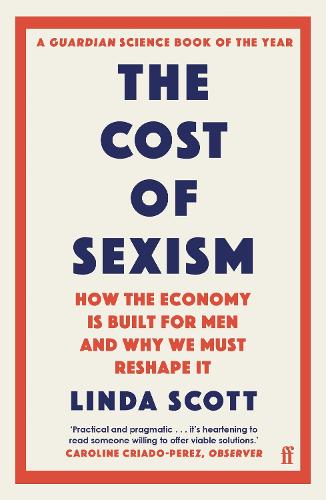This is probably the best feminist book I’ve ever read. Essentially, what Linda Scott does in it is look at sexism (or really misogyny) that’s happening all over the world, and then explain how it is that that negatively effects everyone. Of course, it’s obvious that misogynistic behaviours will be bad for women, but she looks at how they harm men too, and how everybody suffers because of it.
She gave a perfect example of something she had observed in African countries. In poorer families, the men would be put first and they’d have the lion’s share of the food. They’d always have enough to eat, while the women would have comparatively less. Because of this, the women don’t actually get enough, and are often malnourished. This even happens while they are pregnant, and then the unborn babies suffer in the womb, and are born prone to illnesses. With hundreds of cased of this happening, there’s a whole generation in poorer health.
She also talked about it being considered taboo for women to work in certain countries, where employers often wouldn’t even seriously consider female applicants for roles. She explains that if the attitude were to change, at large, these countries would essentially be able to double the size of their economies. The workforce would be twice as big, because there’d be twice as many people with their own income to spend on things, and twice as much money then going back into the economy. I’d never even considered this before, but it’s an amazing (if sad) perspective.
Meanwhile, speaking about the US and the UK, she talked about how men occupy many of the highest pay jobs, and the ones which have the largest impact on the way society is organised. She explained that many of these types of role (e.g. with economists) are built on highly misogynistic cultures rooted in the past. Women are frequently driven out by the awful behaviour of people working in these fields, and the overall perspectives are so deeply rooted in the past that new thoughts and ideas in general are not welcomed – this means that sexist ideals continue to play a huge role in decision-making progresses and often end up being seen as more valuable than they really are.
Ultimately, she makes the point that many problems would be solved if women were, A) given equal opportunities and pay in the workplace (especially in higher up, influential jobs), B) if childcare were free and available to everyone, C) if women across the world are given free and easy access to menstrual care. These are the main points, but Linda Scott has a lot to say, and I learned a lot from it (even as someone who tries to be aware of these types of social issues). I recommend everybody give this book a try.
Rating: 9.4/10

